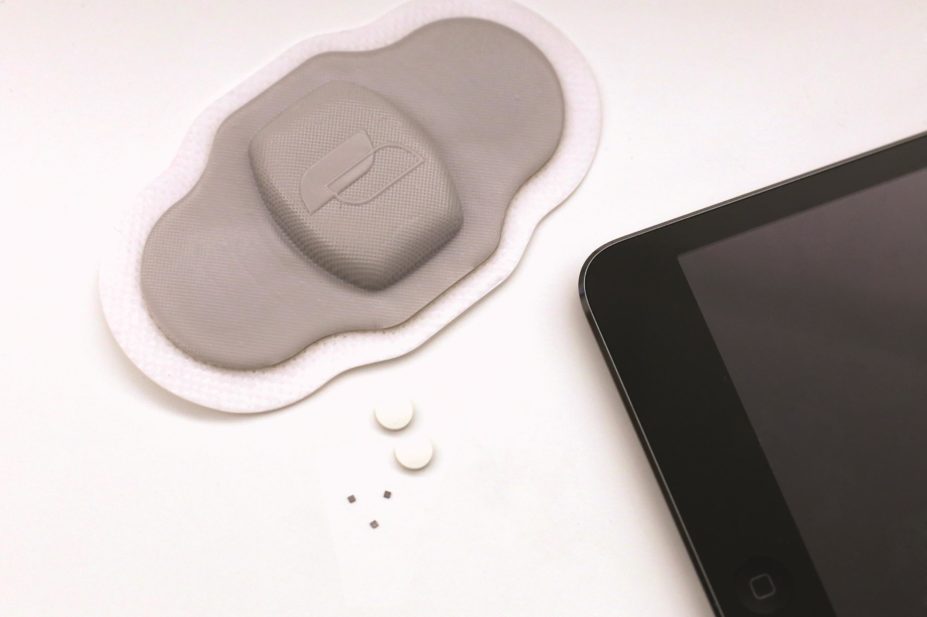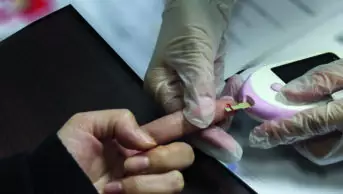
Proteus Digital Health
A drug embedded with a digital sensor that records when a patient’s stomach is ingesting the medicine is being assessed for approval by the US medicines safety watchdog.
It is the first time that a so called “digital medicine” has been considered by the US Food and Drug Administration (FDA).
Both components of the product – Otsuka’s atypical antipsychotic aripiprazole and the ingestible sensor Proteus, made by Proteus Digital Health – have already been approved separately by the FDA.
Now the agency has given the green light for the combined product to be reviewed as a new drug application under its approval system.
Digital medicine has the potential to “revolutionise” adherence to medicines, according to Otsuka, the manufacturer of aripiprazole.
In this case, the drug is embedded with the ingestible sensor, which sends a signal to a patch worn by the patient when the medicine reaches the stomach.
The Proteus patch records the time the ingestion occurred and collects other data including the patient’s body angle, activity and rest.
All the data are sent to the patient’s mobile phone, and with their consent, to their doctor or care giver. All the data are security-protected.
Andrew Thompson, president and chief executive officer of Proteus Digital Health, says: “Digital medicines have the potential to move healthcare beyond the proven efficacy of a medicine to understand the real world effectiveness of a therapy for each individual.
“This means that medicines could be tailored to each of us to reflect our unique medication-taking patterns, lifestyle and daily health choices.”


